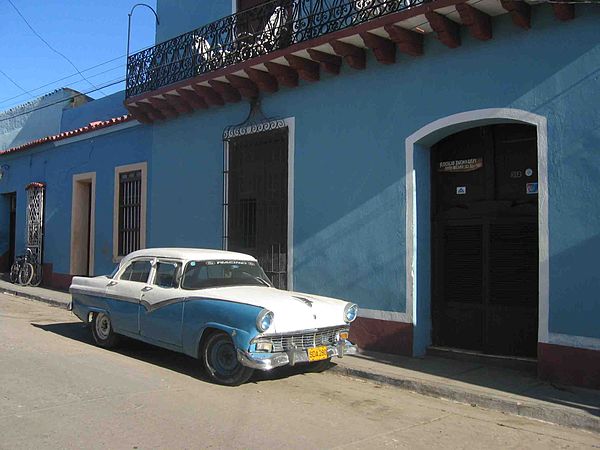The Sharing Economy in Diverse Places
In many places, people tend to overlook that doing business is a given right. To own a start-up, to be able to legally operate one, as well as find business partners without having to resort to underground or illicit methods in doing so are all taken for granted.
In most countries, sharing economy start-ups fall in between the grey area of semi-legal to being governed by unclear laws, regulations and jurisdictions.
In others, most, if not all businesses are banned or made illegal due to strict property laws (Cuba for example, where property cannot be sold) and sharing businesses as a result pop up to feed growing hospitality and tourism industries.

The two main sectors affected by such developments in the legal landscape are also the biggest by far, ride-sharing and home-sharing or property-sharing. These are sometimes not strictly speaking, sharing economy start-ups, but they do fall under that category.
A point to note is that while the sharing economy has its roots in a non-profit driven model, to operate in a market driven economy and to deal with costs, start-ups have adapted their business model to generate some form of revenue to keep their costs covered.
As such, some have evolved completely from a non-profit driven model to a for profit sharing startup model. While revenue is needed to cover costs, profits should not be the be all and end all goal of sharing start-ups, and many would do well to remember that.
One country to look at where an organic model of the sharing economy has taken root for some years due to an eclectic mix of factors is Cuba. Yes, surprisingly, it’s Cuba.
Cuba has a slow but very steady growing tourism industry, with tourism bringing in hard cash in the form of US dollars and Euros. In Cuba, the monthly government salary is about 10 US dollars a month, with the local Cuban currency being worth a lot less on the international market.

However, since buying and selling property is not permitted in Cuba, as well as development and refurbishment of existing hotels and other residential properties is quite difficult due to the embargo, enterprising Cubans have turned to renting out their houses and villas in a sharing economy style arrangement for profit.
One night at a Cuban villa, paid in US dollars, or the local equivalent can be a monthly salary and more for a Cuban homeowner. The way this is done is simple – the owners of the house get people who usually guide tourists around at the airport to recommend them their rooms, or villas, as well as distributing their business cards to any potential customers.
Casa particular (Spanish for “private house”) is a phrase meaning private accommodation or private homestays in Cuba. As a result of more government action, Cubans are now also allowed to rent out their rooms to tourists.
Casa Particulars
The difference between an Airbnb apartment and a casa particular is simple – you rent a room online via Airbnb, you get the keys, the owner shows you the house, and then you stay there. It’s a transaction.
Casa particulars however, have their owners still living in them alongside you in an actual sharing arrangement. As such, you can ask them where to visit, or request breakfast or dinner cooked for you at a agreed rate. Perhaps, this is what sharing should have been?
This is not to suggest that the sharing economy should be limited, or that it should be kept small scale and not be able to scale up. But the fact still remains that the sharing economy at its core is meant to serve a very human need – to be able to distribute resources efficiently while putting people in touch with other people, not acting as a platform for just transactions, but also for the human connection.
Ride-sharing done different
A great example of another start-up going back to the sharing economy roots is based in Austin, Texas. Now, if you remember correctly – America is a hot battleground for the two largest ride-sharing app start-ups in the world, Uber and Lyft. However, both companies have been stopped dead in their tracks in Austin Texas, as the saying goes, because the town ain’t big enough for the both of them.
Austin, Texas is really large, it’s just that the city has rules limiting and regulating ridesharing companies. Now, this rule isn’t so much related to worker welfare, or pay at all, but rather was about identification and private data concerning drivers.
Due to this, both Uber and Lyft have stopped operating in the city till now.
Enter RideAustin, a not-for-profit app that follows the regulations as well as has a heart for the local poor and needy. RideAustin has the feature for riders to round up their fares to the next dollar, with the difference in the actual amount and rounded up amount being donated to a charity of the rider’s choice.
There’s also another interesting feature that deals with the revenue and finance side of things – Uber is famous for its surge pricing model, and it’s a model that people think of when they hear of the sharing economy. However, RideAustin has made it entirely optional. Riders who pay the surge pricing of course, get first pick of rides, but riders can also choose to wait it out in the virtual queue of people waiting for a ride.
So far – RideAustin starts all their operations in June, having already had the support of local companies who have prepaid for rides along with donations from private locals to fund this venture.
Perhaps, this time, David will beat Goliath again?



